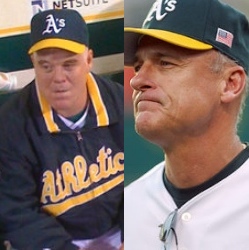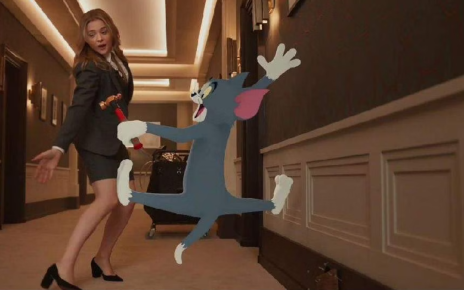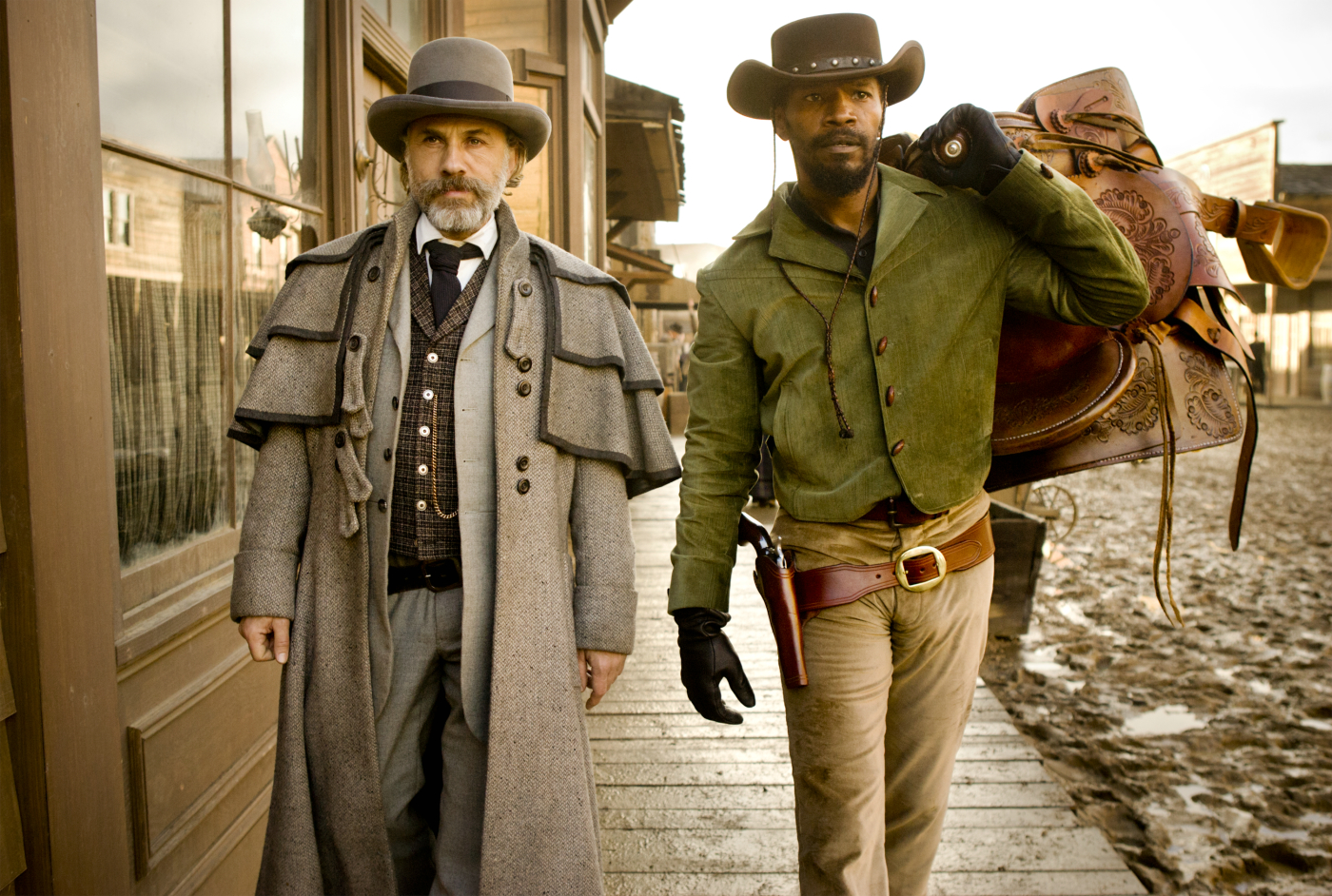(The following article was written in March of 2003)
Between August 13 and September 4, the Oakland Athletics, my Oakland Athletics, set an American League record with twenty consecutive victories. It was quite a party. After tense come-from-behind victory #18 (Miguel Tejada walk-off homer in the bottom of the ninth for the win) against the Minnesota Twins, strangers on freeways all over the Bay Area who had been listening to the game on radio while driving pulled their cars to the side to get out and hug each other. Towards the end of the streak, I started receiving phone calls and e-mails asking the question of the day, “how do I feel about Art Howe, now?” I have been among Art’s greatest critics over the past seven seasons; and “How now Art Howe?” was a legitimate question. Art Howe has delivered 296 regular season victories and three consecutive playoff appearances for Oakland in the past three years. Have I softened my position that the man is detrimental to the A’s success?
No.
Let me clarify that: while it is clear that over twelve seasons Art Howe has learned a thing or two about getting a team into the playoffs, his playoff record itself more than compensates in the other direction.
If Art Howe manages to win eight (8) games for his new team, the New York Mets, before getting fired, he will join a prestigious list of managers who have won 1,000 career games. Of the dozens of men on the list, there are only three others who have failed to win a pennant or a playoff series. And, you know what? Art Howe is the only one without a good excuse.
[unordered_list style=”green-dot”]
- Jimmy Dykes (1,406 victories) managed the White Sox, Athletics, Tigers and Indians from 1934-1961. His teams constantly competed against the Yankees of the 30s and 50s and the Red Sox and Indian powers during that time. He never finished first, but then he never got a chance at an ALCS, much less an ALDS, either. The World Series was the only post-season series up until 1969, so if you didn’t beat the Yankees, you didn’t make the post-season. Good luck with that.
- Bill Rigney (1,239 victories) managed the Giants between 1956 and 1960 (right before they got a pitching staff) and then managed the dreadful Los Angeles Angels. Without free agency, he, too, had to compete against a Yankees dynasty, with an expansion team no less. And in the 60s, expansion teams were bad and stayed bad. His 1970 Minnesota Twins won the relatively new AL West, but lost the ALCS to the Baltimore Orioles. He never made the playoffs again; the division would be dominated by the Oakland A’s long after he hung it up.
- Gene Mauch (1,902 victories) was notorious for his desire to attack project teams. He never desired a front-runner, and rarely got one. Mauch managed the 60s Philadelphia Phillies, the expansion Montreal Expos, the Twins and the California Angels. Only his 1982 and 1986 Angels made the playoffs; both sank into the quagmire following playoff years. Mauch did get two ALCS losses for his efforts, but never got to compete for an ALDS spot.
[/unordered_list]
None of these three men ever managed in a time where more than four teams made the playoffs.
Art Howe has managed more years with three rounds of playoffs (eight teams eligible for playoffs) than without. Eight teams making the post-season means two things: 1. The post-season is much easier to make and 2. Weaker teams make the post-season. I suppose it’s a subjective thing, but I’d say at least six or seven Art Howe teams were capable of making the post-season leaving his failure to advance past the first round with any team historically inexcusable. This is how patience is rewarded.
Yes, Art Howe teams have made the playoffs. In the days of Babe Ruth, two teams made the post-season; this lasted through the sixties. Now eight teams make the post-season. Post-season appearances are much more about the long haul than one big victory. So I ask, in all earnestness: what do you say about a guy who has won over 1,000 games in his career, but not a single one when it counted, really and truly counted?
I see the baseball season as a long car-ride: the General Manager is maneuvering a rental down a very long four-lane inner-city street with many stoplights. Yelling in the backseat are the team’s respective media and fan base. The stoplights and fuel represent the players (for several years, the Yankees have driven a full tank with lights timed at 55 MPH; the Devil Rays have been operating with the gas light on ever since they got into the AL). The durability and reliability of the car represents your luck over the course of the summer. The team’s manager is the guy right ahead of you in traffic. I’ve often thought that the manager’s job was highly overrated in the regular season. Anyone can tell that if the road is long enough, whether or not your team makes the playoffs will depend almost entirely on stoplights and the reliability of your auto. Just as regular season games are rarely determined by managerial decision, the guy in front of you will drive you crazy for a short amount of time, but sooner or later his driving becomes insignificant and not all a factor as to whether your car is going or not. But at any given time, all you see is the guy in front of you.
Art Howe is a Sunday driver.
And you can see this the way the seasons have played themselves out: for three years, Art Howe has insisted that the A’s lights were timed at 45 MPH. He used to insist this for years before when the A’s lights weren’t timed at all, which made Howe the buffoon of the underachieving Athletics. For the past three years, however, the A’s have cruised through the Spring, twice collecting baseball’s best record when the games didn’t count. When other teams revved up and floored it to start the season, Art stressed driving safety. The A’s floundered for the first half of every season. In the second half of each year, in turn, the road changes for other teams; driving conditions change; fuel amounts change. Meanwhile, the A’s have cruised, hitting their timed lights with record efficiency (22-7 in September of 2000, 67-20 to finish up 2001, 20 straight victories August-September of 2002). Art Howe has learned this. Twelve seasons have taught him patience and the ability to ride a hot streak.
Art Howe knows that if he is patient and hits the timed lights, he’ll get there before the other teams. It’s a useful skill to have. It highly contrasts the A’s last man, Tony LaRussa, who knew traffic patterns, wind patterns, fuel efficiency and the make and model of every other car on the road (and if he didn’t know it, he’d look it up). Art knows the lights are timed. This is his gift to the game.
In the playoffs, the driving conditions change; the lights aren’t timed and the road is a great deal shorter than it was. Suddenly, everything the guy in front of you does means the difference between you making your job interview on time or you being late. Just as everything a post-season manager does gets blown up for the world to see. But Art seems to insist that the lights are still timed and patience is a virtue.
And thus we arrive at Art Howe’s post-season record. You know, it really used to be that he was just a bad regular season manager; I think he was about two years behind in the learning curve – the A’s could have competed sooner had Art just run a red light or two in ’98 or ‘99. But the post-season projects all of Art’s faults as a manager: poor planning, poor personnel moves, bad strategic decisions, an obsession with playing the percentages, poor bullpen management and complete inability to read a scene. I can think of at least a half-dozen major playoff Howe goofs over the past three years: 2000 decision to start Gil Heredia in game five (when willing to bring in Kevin Appier in the second inning), 2001 game four insertion of F.P. Santangelo into the line-up, 2001 four-man rotation, 2002 use of Barry Zito in a meaningless game against the Rangers to end the season instead of Game 1 v. the Twins, the infamous decision to let Jeremy Giambi run for himself in the 7th inning of 2001 game #3(fans might remember this as Derek Jeter’s greatest defensive moment, all made irrelevant had Art pinch-run Eric Byrnes)… in fact 2001 Game #3 is a story unto itself: A’s up 2-0 on the thrice defending World Champs, coming home to wrap it up. Mike Mussina v. Barry Zito. Only those with long memories and a penchant for hating Art Howe will remember Howe’s reaction when the Yankees signed Mussina the previous winter “We hit Mussina”. Wonder if he added later, “unless, of course, it’s the most important game of my managerial career; in that case we’re going to attack Moose as if we’re swinging whiffle bats.” Now, did Art’s reaction hurt the A’s? Did he cause Oakland to extend its third straight playoff game of ‘no hits with runners in scoring position’ (0-29, wow!)? No, probably not. But his comments and his Pollyanna attitude certainly didn’t help Oakland in October, either.
Six times in three years under Art Howe the A’s played a one-win-and-you’ve-advanced-in-the-playoffs game. Six times. Four games were at home; four games were decided by fewer than three runs; four games were started by a guy named Hudson, Zito or Mulder. The A’s went 0-6 in those games. Six times an opponent had to stave off elimination and six times it found a way. And in all six, Art emerged from the post-game with a look on his face that was slightly disgruntled but mostly saying, “We’ll be back”. That’s the essence of lousy managing.
Art Howe is often credited with development of young players. To me, it depends on which young players you’re talking about. He certainly hasn’t screwed up the careers of Jason Giambi, Miguel Tejada, Eric Chavez, Tim Hudson, Mark Mulder or Barry Zito. The problem is that those guys are now, to a man, perennial MVP or Cy Young candidates which means that either 1. They were likely too talented to be screwed up royally a bad manger or 2. Art Howe could do this anywhere (i.e. were Howe in Detroit several years ago, would we now have Tony Clark, Bobby Higginson, Juan Encarnacion, Brian Moehler, Jeff Weaver and Mike Maroth as MVP and Cy Young candidates…see how silly that sounds?)
Look at the flip side of that coin. The following is a short list of other Art Howe young guys who enjoyed success at the high minor or even major league level: Terrence Long, Ramon Hernandez, Jose Ortiz, Aaron Harang, Eric Hiljus, Adam Piatt, Esteban German, Frank Menechino, Eric Byrnes, Carlos Pena, Jeremy Giambi, et al. Are any of these guys thriving? Does anyone think Art Howe got the most of any of them? None of these guys are Miguel Tejada or Barry Zito. Perhaps that’s the point – it’s easy to polish a statue; it’s harder to create one.
Howe’s finest rookie managing has to be for Ben Grieve. Howe got a year out of Grieve (27, 104, .846 OPS) in 2000 that Ben clearly cannot find again in Tampa. But if you examine the man a little more closely, you find that Ben’s skills are shallow – he’s slow, fields poorly and is a serious rally killer offensively. In 2000, he set an all time record with 32 GIDP for a left-handed batter. It’s easy to see the Howe influence here: I’m sure he simply told Ben, “swing hard at anything you think you can hit”, and I’m just as sure this is exactly what Ben wanted to hear. Before you know it, Grieve hit a ground ball right at somebody every time there was a runner on base. It was uncanny.
No manager in baseball has received more Manager of the Year votes than Art Howe in the past four years, which leads me to my final point. Even the most biased of A’s fans has to admit that Oakland did not have a good off-season. The A’s downgraded at three positions: DH (Ray Durham to Erubiel Durazo), Closer (Billy Koch to Keith Foulke) and 4th Starter (Cory Lidle to Halama? Hiljus? Harang?) – (Justice to Singleton is probably a wash; I could argue it either way). The A’s also still play in baseball’s toughest division, their rivals being the defending World Champs and a team just one summer removed from breaking the record for wins in an American League season. Wouldn’t losing a manager as “respected” as Howe cause voters –the same voters who keep calling Howe the next best in the league – to pick the A’s no better than third? Nope, these same guys are picking Oakland to win, go figure. Is Howe a quality manager or not? You decide.
How do I feel about the well-past-due departure of Art Howe? Strangely sad. I believe that Grandfather Idiot wasted Oakland’s two best post-season chances in the last decade. Nobody listened to the boy because he’s a boy. There was, indeed, a wolf.
The Moneyball review can be found here.



